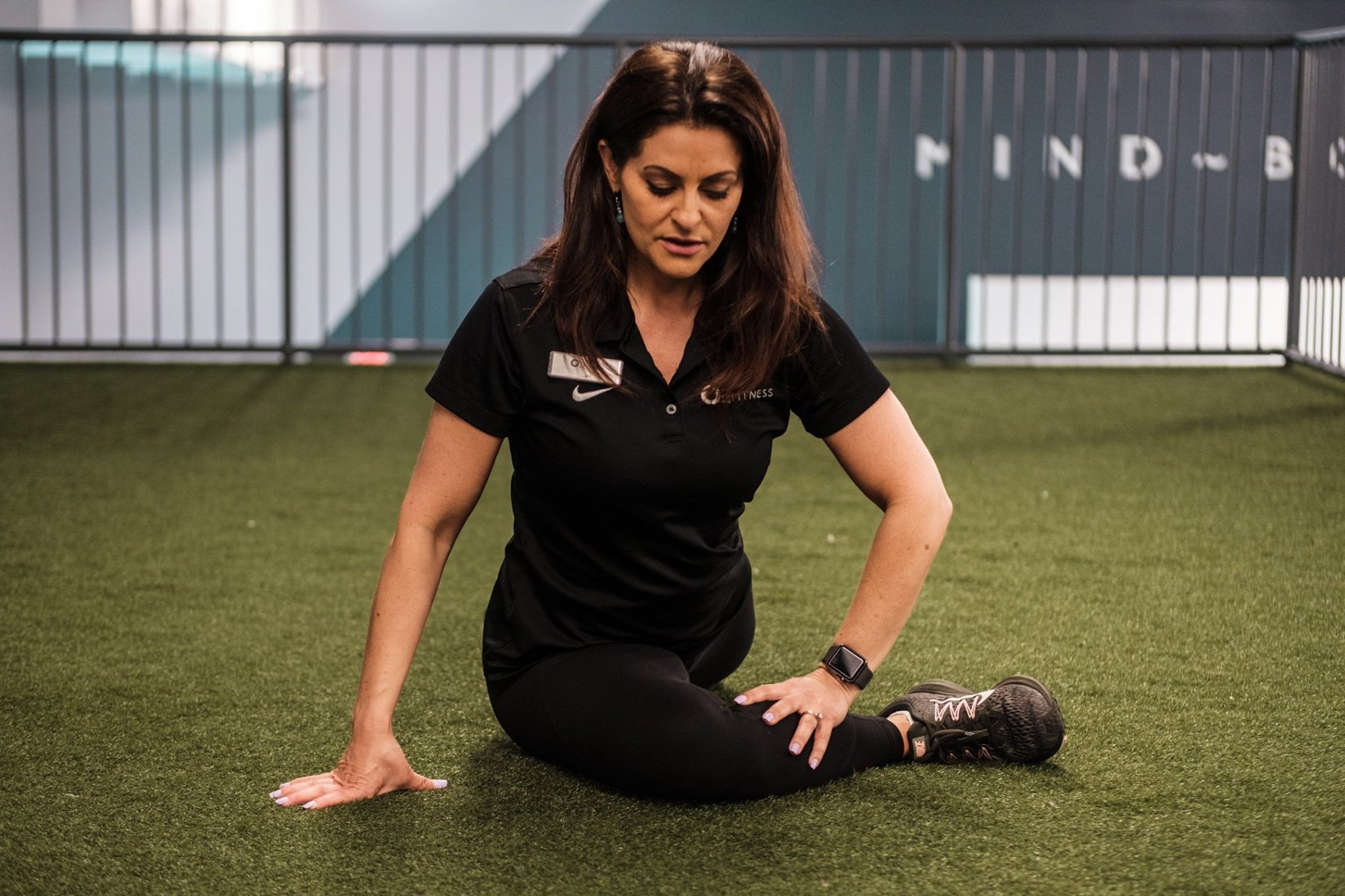Personal Trainer Consent Form Template (FREE)
Use this free personal trainer consent form template for your fitness business and modify as needed to make it your own.

Are you considering becoming a personal trainer? If so, one important aspect you need to familiarize yourself with is the use of consent forms. Use the free personal training consent form template below and then learn all about consent forms, waivers, and assessments. These forms are not just a legal requirement but also an essential tool for ensuring the safety and well-being of both you and your clients. In this article, we will delve into the topic of personal trainer consent forms, exploring their importance, key elements to include, and providing you with a step-by-step guide to designing your own comprehensive PT consent form.

Ensure the safety and protection of your clients with this comprehensive personal trainer consent rorm template. Be sure to also check out the free gym waiver template, free fitness class waiver template, and free personal trainer waiver template.
And, of course, managing your fitness business online with the best gym management software and the best personal training software means that you can easily manage your business online with software that automates your business and saves you time. Communicate with members and clients with email, SMS, and in-app messaging marketing cadences, you can create fitness session plans, waivers, forms, fitness assessments, lead forms, registration forms, offer online booking, workout plans, and much more.
Book personal training clients effortlessly online and in-person; make managing personal training session cancellations and reschedules a breeze with the best gym booking software, send waivers and consent forms with the best gym invoicing software, and even send fitness assessments with the best fitness assessments software—all in one platform!
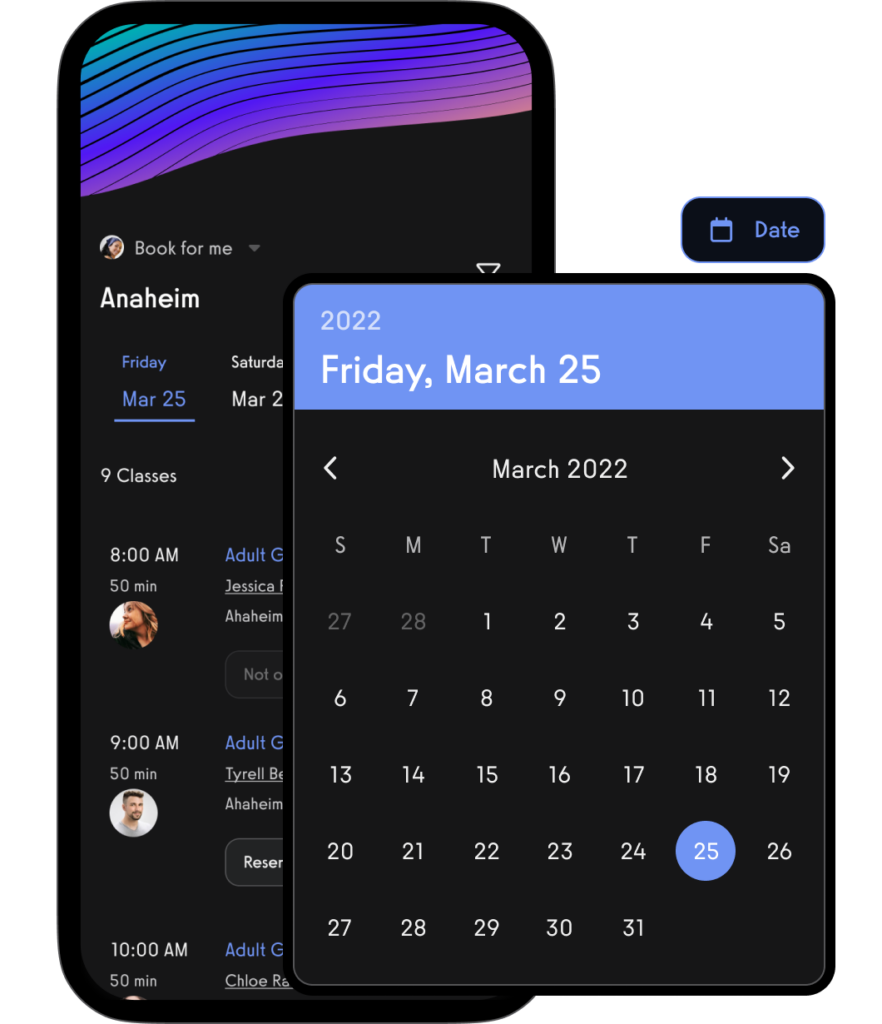
Schedule automations using email, SMS, and in-app notifications to remind clients to sign their waivers and consent forms electronically, trigger messages to remind clients of their upcoming personal training appointments to reduce no-shows. Use the best gym marketing software to get started.
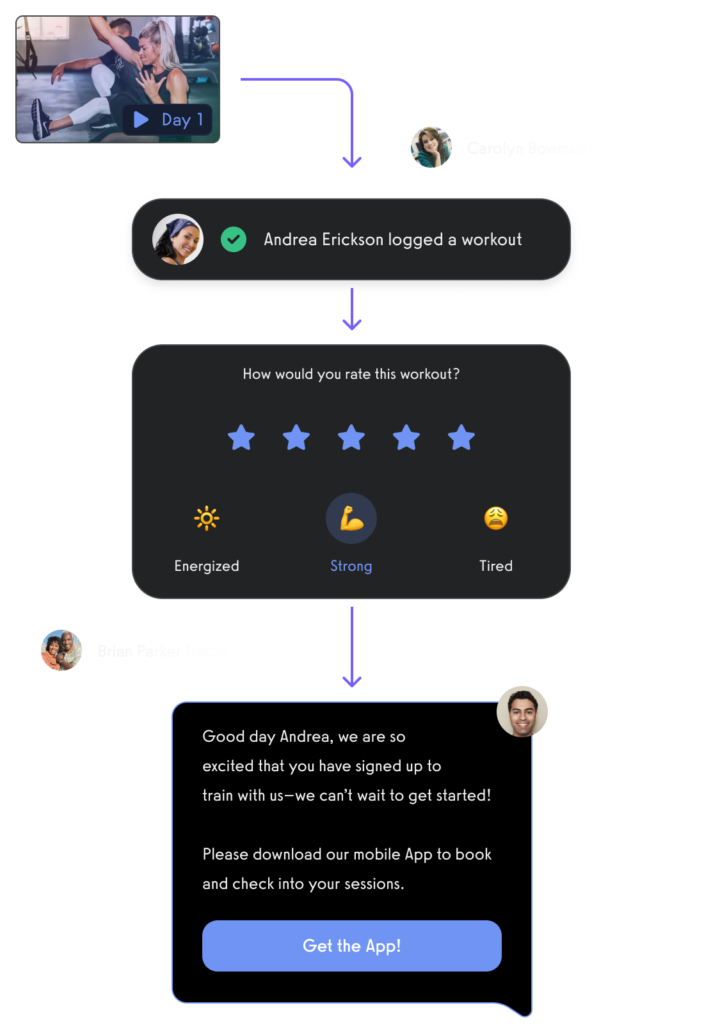
Process payments easily online or in-person with the best gym payment processing software and the best apps for personal trainers who want their very own fitness app.
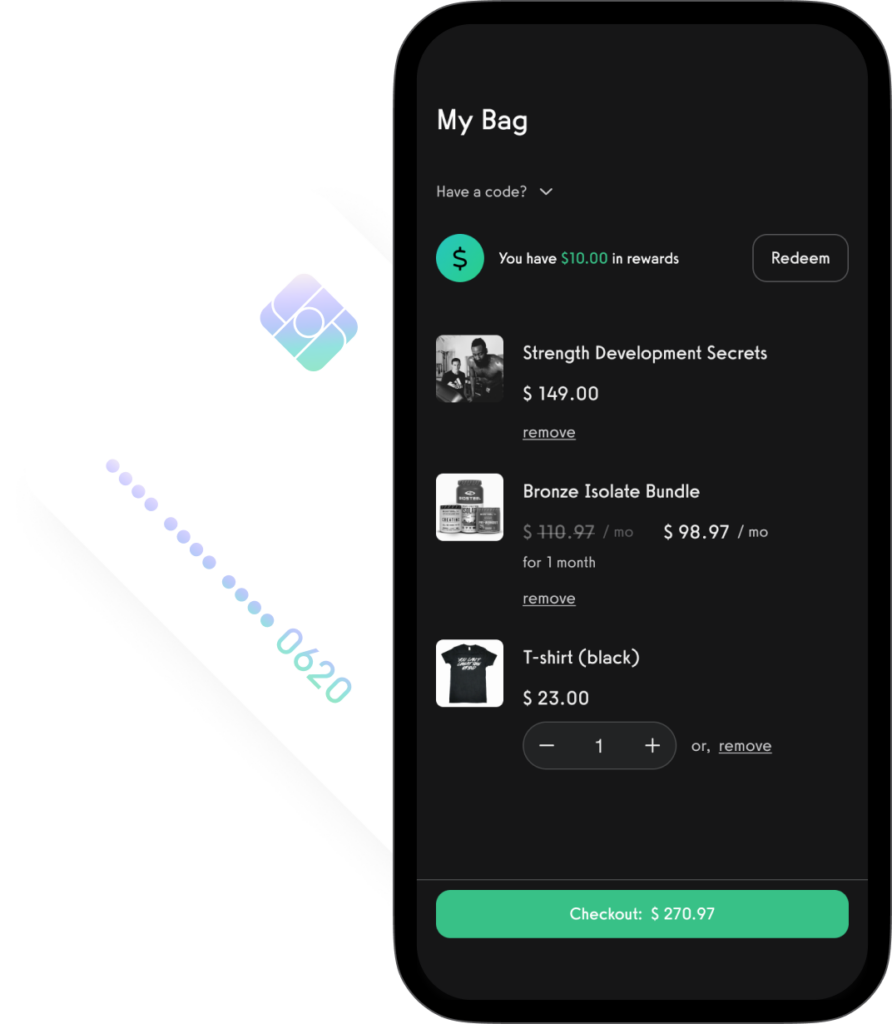
Use the Exercise.com workout plan creator to create your workout plans and fitness assessments.

Publish your custom branded fitness apps to iOS and Android so you can offer a premium experience to your community.
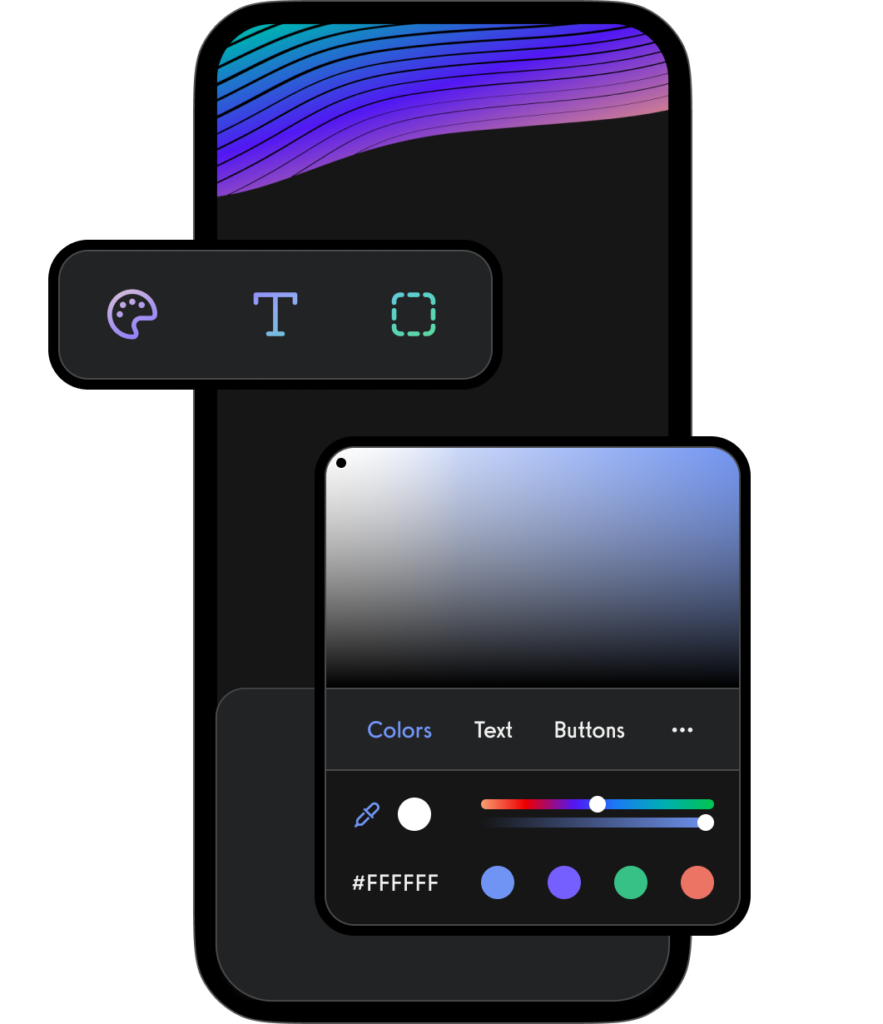
Run fitness challenges, create online workout groups, do distance training, and of course, deliver fitness assessments and workouts, all right within the Exercise.com platform (custom branded to your brand).
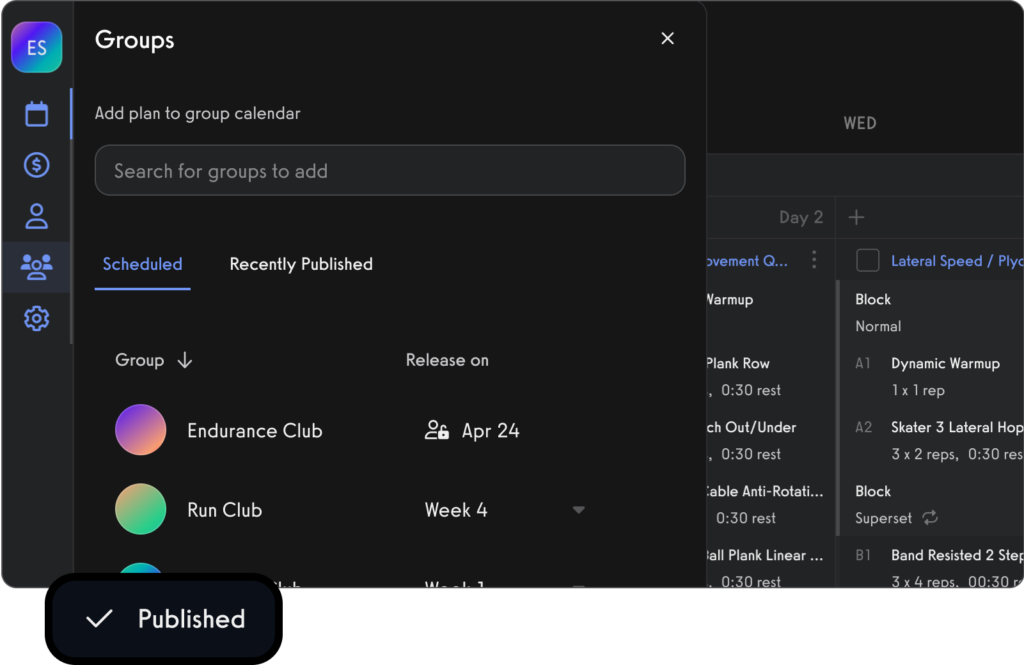

Personal Training Consent Form Template
[Your Business Name or Your Name – Personal Training]
Personal Training Consent Form
Date: [Date]
Client Information:
- Full Name: __________________________________
- Date of Birth: __________________________________
- Address: ________________________________________________________
- Phone Number: __________________________________
- Email Address: __________________________________
Consent to Participate:
I, [Client’s Full Name], hereby voluntarily consent to participate in the personal training program provided by [Trainer’s Name or Business Name]. I understand that this program may include, but is not limited to, strength training, flexibility development, aerobic and anaerobic conditioning, and other fitness activities.
Acknowledgment of Risks:
I acknowledge that participation in physical exercise and fitness activities inherently involves risks of physical injury. I agree that I am voluntarily participating in these activities and assume all risk of injury that may result.
Health Declaration:
I declare that I am in good physical condition and do not have any medical condition or impairment that might prevent my participation in physical training activities. I agree to inform my trainer of any changes in my health status.
Consent to Physical Touching:
I understand that during personal training, physical touching and positioning may be necessary by the trainer to ensure proper technique and body alignment. I hereby give my consent for this physical interaction as needed.
Emergency Medical Treatment:
I give consent to receive emergency medical treatment if necessary during my participation in the training program.
Use of Likeness:
I grant [Trainer’s Name or Business Name] permission to use my likeness in photographs, video recordings, or electronic images in any and all of its publications, including web-based publications, without payment or any other consideration.
Client’s Signature: __________________________________
Date: ____________
Trainer’s Signature (if applicable): __________________________________
Date: ____________
[Additional Notes or Clauses if Any]
This Personal Trainer Consent Form Template is designed to ensure clear communication and mutual understanding between personal trainers and their clients. It covers essential aspects such as consent to participate, acknowledgment of risks, health declaration, and emergency procedures. This form should be customized to reflect the specific practices of your personal training services and reviewed to ensure it aligns with local legal requirements.
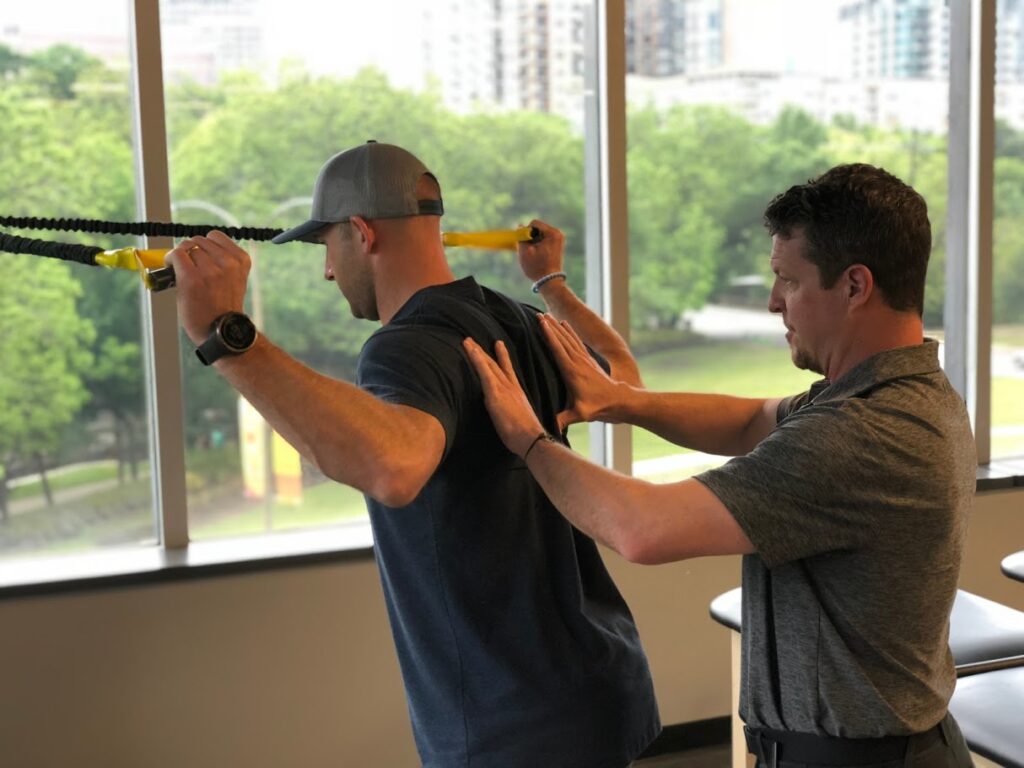
Why Do Personal Trainers Need Consent Forms?
Consent forms act as a legal safeguard for personal trainers, protecting them from potential liability and ensuring they adhere to ethical guidelines. As a personal trainer, you will be working closely with clients, assessing their fitness levels, prescribing exercises, and even providing nutritional advice. By obtaining their consent, you are establishing a transparent and professional relationship, where the client understands the risks involved and agrees to participate fully in the training program.
Moreover, consent forms provide valuable documentation should any disputes or legal issues arise in the future. They serve as proof that you have acted diligently, taken into account any pre-existing medical conditions or injuries, and obtained informed consent from the client before commencing the training sessions.
One important aspect of consent forms is that they help personal trainers establish boundaries and expectations with their clients. By clearly outlining the scope of the training program, including the duration, frequency, and specific goals, trainers can ensure that both parties are on the same page. This helps prevent misunderstandings and allows trainers to tailor their approach to meet the individual needs and preferences of each client.
In addition, consent forms also address confidentiality and privacy concerns. Personal trainers often collect personal information from their clients, such as medical history, contact details, and progress photos. Consent forms provide a legal framework for trainers to handle this information responsibly and ensure that it is kept confidential. This helps build trust between the trainer and client, as the client can feel confident that their personal information will be protected and used only for the purposes outlined in the consent form.
Understanding the Importance of Consent in Personal Training
Beyond the legal implications, consent in personal training embodies the principles of respect, autonomy, and client-centered care. It acknowledges the right of individuals to make decisions about their own bodies and health. By seeking consent, personal trainers demonstrate their commitment to providing a safe and supportive training environment, where clients feel empowered and actively involved in their fitness journey.
The Legal and Ethical Obligations of Personal Trainers
As a personal trainer, you have a duty of care towards your clients. This means you must ensure their safety and well-being during training sessions. In order to fulfill this duty, you need to be aware of any potential risks or contraindications that may be relevant to each client. Consent forms play a crucial role in obtaining the necessary information from clients and documenting it appropriately.
In addition to legal obligations, personal trainers are guided by a set of ethical principles. Consent is a fundamental aspect of these principles, upholding the trainer’s responsibility to act in the best interests of the client and maintain their confidentiality. By obtaining consent, trainers show respect for their clients’ personal boundaries and establish trust, which is vital for a successful trainer-client relationship.
Creating a Comprehensive Consent Form for Personal Training Clients
When designing your consent form, it is essential to ensure that it covers all the relevant aspects, leaving no room for ambiguity or misunderstanding. Let’s explore some key elements that you should include:
– Personal information: Start by collecting basic details such as the client’s name, contact information, and date of birth.
– Medical history: Request information about any pre-existing medical conditions, allergies, or injuries that could impact the client’s ability to engage in physical exercise safely.
– Fitness goals and expectations: Allow clients to outline their health and fitness objectives to guide the design of their personalized training program.
– Assumption of risk: Clearly explain that participating in physical activity carries inherent risks and that clients accept the responsibility for any injury or accident that may occur during training sessions.
– Confidentiality and data protection: Assure clients that their personal information will be handled securely and in compliance with privacy laws.
– Signature and date: Provide spaces for the client to sign and date the form, indicating their informed consent to participate in the training program.
Step-by-Step Guide to Designing a Consent Form Template for Personal Trainers
Creating a consent form template may seem daunting at first, but with a structured approach, it can be an efficient and straightforward process. Follow these steps to design your own personalized consent form:
1. Identify the key elements outlined above that are relevant to your training practice.
2. Decide on the format of the form: consider whether you want to create a digital form for online submissions or a printable document.
3. Organize the elements logically, ensuring a clear and concise layout that is easy to read and understand.
4. Review your form for accuracy and completeness. Seek feedback from colleagues or legal professionals if needed.
5. Save the final version of your consent form as a template, ready to be customized for each client.
Ensuring Client Safety and Confidentiality with Consent Forms
One of the primary purposes of a consent form is to help personal trainers prioritize client safety. By gathering detailed information about each client’s medical history and any potential limitations, trainers can tailor their programs accordingly. This knowledge allows trainers to design exercises that are suitable and safe for each client, reducing the risk of injury or complications. Additionally, consent forms serve as a confidential record of the client’s health information, ensuring that it is handled responsibly and protected from unauthorized access.
Addressing Liability Concerns with a Well-Designed Consent Form Template
Liability concerns are undoubtedly a significant consideration for personal trainers. In the event of an accident or injury during training sessions, a well-designed, comprehensive consent form acts as evidence that the client was aware of the risks and accepted them voluntarily. By clearly outlining the assumption of risk and the client’s responsibility in the consent form, personal trainers can mitigate potential liability and protect their professional reputation.
How to Obtain Informed Consent from Personal Training Clients
Obtaining informed consent is a crucial step in the client-trainer relationship. Ensure that your clients fully understand the information presented in the consent form by following these best practices:
– Explain the purpose and importance of the consent form to clients, emphasizing that their participation is voluntary.
– Provide ample opportunity for clients to ask questions and seek clarification before signing the form.
– Offer written explanations or additional resources to supplement the consent form, especially when dealing with technical or complex concepts.
– Encourage clients to take their time to review and consider the information provided in the form before making a decision.
– Document any discussions or explanations provided to clients regarding the form to demonstrate that they were adequately informed.
Exploring Different Types of Personal Trainer Consent Forms
Personal trainer consent forms can vary in format and content depending on a trainer’s specialization and specific training services. Some common types of consent forms include:
– General consent form: A comprehensive form that covers all the essential elements discussed earlier and can be used for a variety of training programs.
– Medical release form: Focuses on obtaining authorization from clients to communicate with their healthcare providers and request relevant medical records.
– Media release form: Seeks permission to capture and use photographs or videos of clients for promotional or educational purposes.
– Group training consent form: Designed for clients participating in group fitness classes, specifying any additional considerations related to training in a group setting.
– Online training consent form: Tailored for personal trainers offering virtual training services, it includes additional elements related to the use of technology and remote supervision.
Tips for Customizing Your Personal Trainer Consent Form Template
While it is crucial to have a standardized template for your consent forms, customization is key to addressing the unique needs and circumstances of each client. Consider the following tips:
– Add space for clients to provide additional information that may be relevant to their specific situation.
– Include a section for clients to outline any specific goals, preferences, or concerns they have related to their training program.
– Highlight any disclaimers or warnings that are specific to the client’s circumstances, such as pregnancy or chronic health conditions.
– Use language that is clear, concise, and easy to understand, avoiding technical jargon or ambiguous terms.
– Ensure the font size and formatting are legible and user-friendly, especially if your consent form will be provided in digital format.
Best Practices for Collecting and Storing Client Consent Forms
As a personal trainer, it is essential to establish efficient systems for collecting and storing client consent forms securely. Adhering to best practices in this area will not only demonstrate your professionalism but also ensure compliance with privacy laws. Consider implementing the following practices:
– Use secure online platforms for collecting digital consent forms, ensuring that the platform has appropriate measures in place to protect client data.
– If handling paper forms, establish a system to keep them securely locked in a designated storage area, only accessible to authorized personnel.
– Clearly communicate your data protection measures to clients, assuring them that their information will be treated confidentially and will not be shared without their consent, unless required by law.
– Determine a retention period for client consent forms and regularly review and dispose of expired forms in a manner that preserves client confidentiality.
Streamlining the Consent Process with Online Forms and Digital Signatures
In today’s digital age, personal trainers can streamline the consent process by embracing technology. Online forms and digital signatures offer numerous benefits, including:
– Convenience for clients, who can easily complete and submit forms electronically from any location.
– Efficiency for trainers, as online forms can be automatically collated and stored securely, reducing administrative tasks.
– Increased accuracy, as the use of electronic forms minimizes errors frequently associated with manual data entry.
– Verification and authentication of signatures, providing added security and legal validity.
By embracing digital solutions, personal trainers can optimize their workflow, enhance client experience, and ensure compliance with data protection requirements.
Common Mistakes to Avoid When Drafting a Personal Trainer Consent Form Template
While designing your consent form template, it is essential to be aware of common mistakes that could undermine its effectiveness. Avoid the following pitfalls:
– Failing to use clear and understandable language: Ensure that your form is accessible to clients of all educational backgrounds and that any technical terms are appropriately defined.
– Overlooking the importance of informed consent discussions: While the form itself is vital, engaging in meaningful conversations with your clients is equally important to address any questions or concerns they may have.
– Neglecting updates and revisions: Stay up to date with legal and ethical developments in the field of personal training and revise your consent form template periodically to reflect any necessary changes.
– Inadequate storage and security measures: Failing to implement proper data protection measures can compromise client confidentiality and expose personal trainers to liabilities.
Navigating Privacy Laws and Protecting Client Data in the Fitness Industry
Data protection is becoming an increasingly important consideration for all industries, including fitness. Ensure that you adhere to privacy laws and regulations, including the collection, storage, and use of personal information. Be transparent with your clients about your data protection practices, explaining how their information will be handled, and obtaining their consent to process their data as required by law.
Personal trainer consent forms are not just a bureaucratic requirement but an essential tool for ensuring client safety, maintaining professional standards, and protecting personal trainers from potential liabilities. By designing a comprehensive consent form and following best practices, you can establish a strong foundation for a trusted and successful trainer-client relationship. Prioritize the needs and rights of your clients by seeking their informed consent, and embrace technology to streamline the process and ensure the secure handling of their personal information. With these practices in place, you can focus on what you do best: helping your clients achieve their fitness goals while providing a safe and supportive training environment.
What is an example of informed consent for personal training?
An example of informed consent for personal training might include a statement where the client acknowledges understanding the nature of the exercises, the potential risks and benefits of the training program, and affirms their decision to participate.
Can I make my own consent form for personal training?
Yes, you can create your own consent form for personal training. It should include clear information about the training program, potential risks, benefits, and client rights. However, it’s advisable to consult with a legal professional to ensure it meets legal requirements.
How do you write a short consent form for personal training?
A short consent form for personal training should include a brief description of the training program, acknowledgment of the risks involved, a statement of client agreement to participate, and spaces for the client’s signature and date.
How do I write an informed consent form for personal training?
When writing an informed consent form for personal training, include details about the training program, potential risks and benefits, client responsibilities, a confidentiality statement, and an acknowledgment section for the client to sign, indicating their understanding and agreement.
What is informed consent and the responsibilities of the personal trainer?
Informed consent in personal training is a process where the trainer ensures that the client understands the nature of the exercise program, potential risks, and their rights. The trainer’s responsibility is to provide clear, accurate information and answer any questions to ensure the client’s understanding.
What is a good example of informed consent for personal training?
A good example of informed consent for personal training includes detailed information about the exercise program, potential risks, expected benefits, alternatives, and client rights. It should be in clear, understandable language and require a client’s signature as acknowledgment.
What is the common rule for consent forms?
The common rule for consent forms, especially in personal training, is that they must provide sufficient information about the nature of the activity, potential risks, benefits, and voluntary nature of participation. The client should be able to make an informed decision to consent without feeling pressured.
What is a valid form of consent for personal training?
A valid form of consent for personal training is a written document that the client reads and signs, indicating their understanding and agreement to the terms and conditions outlined, including risks and benefits of the training program.
When should the personal trainer administer an informed consent form to a client?
The personal trainer should administer an informed consent form to a client before starting any training program, ideally during the initial consultation or first session, to ensure the client is fully aware and agrees to the terms of participation.
What is an example of informed and implied consent for personal training?
An example of informed consent is a signed document where the client acknowledges understanding the training program and its risks. Implied consent might occur when a client participates in the training without a formal agreement but with an understanding of the activity involved.
How can Exercise.com help me send consent forms, waivers, invoices, assessments, etc.?
Exercise.com can help send consent forms, waivers, invoices, and assessments through its comprehensive software platform. It offers tools for creating and managing these documents digitally, allowing clients to easily access, review, and sign them online. This streamlines the administrative process, ensuring important documents are handled efficiently and securely.
